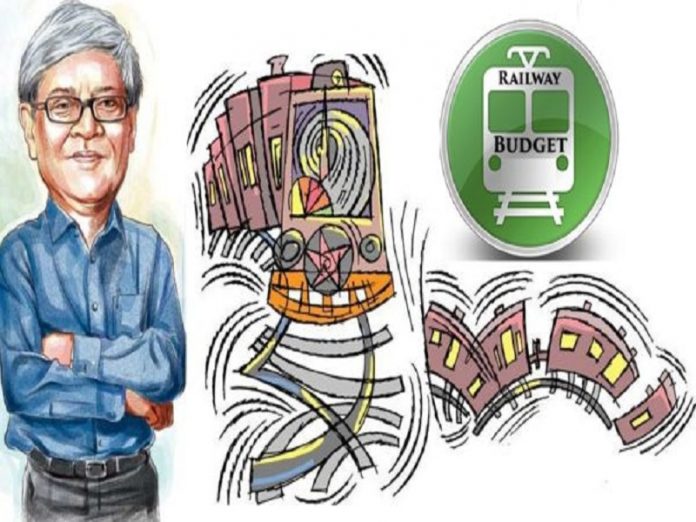Hello Friends,
Here we are providing you some valuable information on important topic i.e. Merger of Railway Budget with Common Budget. It will help you in all Banking as well as Insurance Exams.
Finally 92-year-old practice of having a separate Railway Budget is about to end from the next fiscal i.e. 2017, with Finance Ministry accepting proposal to merge it with the General (Aam Budget).
In order to kick-start the merger process, the Finance Ministry has constituted a five-member committee to work out the formalities of the merger. The deadline for submission of the report has been set as August 31
History of Railway Budget
The Railway budget was introduced by British politician William Ackworth in the year 1924. He suggested separate railway budget as most of the spending by the British government went on building railway lines.
Currently the railway budget is sized at Rs.1.21 trillion, which is very small in comparison to overall budget of Rs.19.8 trillion.
India has about 66,000 km of railway lines, out of which around 17,000 km was added after Independence.
Financial Implications
The Railway Ministry was bearing an additional burden of Rs. 40,000 crore on account of 7th Pay Commission implementation along with the annual subsidies of Rs. 32,000 crore. After merger, the burden will be shared across various sectors and will be looked after by Finance Ministry.
Also, Indian Railway will be exempted from the annual dividend it pays for gross budgetary support from the government. Apart from this, the Decision on raising passenger fares will be taken by the Finance Ministry.
Political Implications
The Merger of Railway budget has some political implications as well. Ministers in order to favour their constituencies go out of the way and introduce new trains and projects. After merger all the decision will be passed on the Finance Ministry.
CHALLENGES AHEAD
- The move will come as a relief to the national transporter, which, until now, has been reeling under an additional burden of Rs 40,000 crore from higher salaries, following implementation of the 7th Pay Commission
- The idea was recently mooted by a committee headed by NITI Aayog member Bibek Debroy, as part of the restructuring of the Railways
- The rail Budget was separated from the main Budget, following recommendation of a panel headed by British railway economist William Acworth in 1920-21
- The largest employer in the country with the largest rail network in the world now accounts for a meagre 15 per cent of the total Union Budget
























